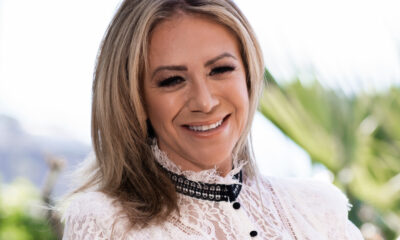GUIDE
The Role of Caregivers in Adult Gerontology: A Comprehensive Guide

Introduction
Family caregivers are the backbone of elder care in America. They contribute over 80% of long-term care for the aging population. This information is from the National Alliance for Caregiving in 2020. As people live longer, their medical, physical, and emotional needs also increase. Caregivers take on more pivotal and complex responsibilities in senior health and wellness. This article explores the multidimensional role of caregivers in adult gerontology.
Understanding Caregiver Responsibilities
Physical and emotional support are important roles for the caregiver in supporting older adults. These are huge factors in their health and wellbeing. Thus, this section lists a few ways in which caregivers accomplish this role.
Personal Care
Nearly 96% of caregivers help with activities of daily living like bathing, dressing, grooming, and meals.
Medication Management
Keeping track of medications, doses, and timing can be extremely complex. But it is still an important part of a caregiver’s role. They need to track and manage the health of older adults. As such, they should be aware of any signs of deterioration. If they spot any, they should take the senior to an adult gerontology primary care provider. Tracking vital signs, medication management, and following treatment plans are just some of their tasks.
75% of caregivers manage medications. It is a task requiring organization, diligence, and communication with healthcare providers. This is according to the Family Caregiver Alliance in 2021.
Mobility and Transportation
This is another aspect of physical support. Over 80% of seniors depend on caregivers for mobility support and transportation. Older adults often have difficulties moving around. Thus, getting to doctor’s appointments or hospitals can be challenging. Caregivers ensure that they can get to their appointments on time. Therefore, caregivers play a crucial role in medical appointments. They are also important in social events and community relations.
Emotional Support
Emotional pressure has caused depression in 40-70 % of caregivers. As stated by the American Psychological Association in 2022. Some of these are because the older adult needs emotional support. Both sides must be supported.
Emotional support is needed at any stage of development. Isolation and loneliness is a cause of depression that particularly afflicts the elderly. But if they are pampered and given company, their situation may be helped immeasurably. It means letting them join in interesting conversations and doing things. Sometimes all they need is an ear that will listen.
Giving the elderly help solving their stress and anxiety is another duty of caregivers. They may even be able to help them cope with such stressors as health changes or life transitions. Another common feeling among the old folks is a sense of loss of independence. Caregivers can offer emotional support and encouragement to them, or help locate services.
Independence and self-reliance are other key aspects of emotional support. With assistance from caregivers, older adults can maintain their independence. Or they can persuade them to take part in activities and be independent. Effectively, the older adults maintain a sense of self-esteem and well-being. Furthermore, emotional support can also help adults maintain their quality of life.
Social Connections
Socially isolated seniors have a 59% greater risk of mental decline. This is according to the Journal of Gerontology in 2021. Caregivers enable valuable social bonds to promote wellness. They can also encourage the senior to join community activities and bond with other seniors and volunteers.
Medical Visit Preparation
Only 34% of caregivers feel prepared for medical duties like wound care. Assisting caregivers in anticipating needs and questions supports better outcomes.
Treatment Decisions
91% of caregivers want more information about medications, tests and procedures. Providing resources empowers caregivers to understand options and make informed choices.
Advance Care Planning
End-of-Life Conversations
82% believe end-of-life wishes should be in writing, yet just 23% have living wills. This data is from the National Institute on Aging in 2022. Caregivers play a crucial role in initiating these end-of-life talks with sensitivity.
Legal Documents
Less than 20% of adults have healthcare power of attorney or living wills. Caregivers can assist by explaining the importance of these legally binding plans.
Cognitive and Emotional Wellness
Brain Health Activities
Participating in mentally stimulating activities lowers the risk of dementia by 63%. Caregivers can incorporate crossword puzzles, chess, and lively discussions.
Addressing Cognitive Decline
Alzheimer’s cases will triple by 2050. Monitor cognition. Early medical treatment is required.
Communication Strategies
73% of caregivers report that doctors do not take caregiver needs into account. Participation can be in the form of active listening and question prompt sheets.
Managing Behavioral Challenges
Ninety percent suffer from disturbing dementia behaviors, such as wandering and agitation. This appeared as an Alzheimer’s Association study in 2021. Methods such as exercise, music therapy, and routine promote stability.
Legal and Financial Considerations
Financial Planning
Average nursing home care is $ 54,00 per year; adult day health programs average about$19,24 per year. Insurance alternatives should be reviewed sooner, as should eligibility for Medicaid/Veterans Aid.
Frequently Asked Questions
How can I prevent caregiver burnout?
Take respite breaks, take part in support groups, and practice self-care techniques. Examples of these are:
- Meditation
- Maintain social connection
- Changes in sleep or appetite Be vigilant for symptoms.
What support services are available?
Using community resources, such as transportation services, meals, day programs, and home health care; or using respite relief work. These services provide relaxation and social stimulation for seniors while affording breaks to caregivers.
How do I deal with hard health decisions?
- Discuss values and priorities early-on openly
- Keep others updated on choices
- Utilize ethics committees and patient advocates when available
- Lean on health providers, social workers, and peers for advice
- Second opinions also bring confidence
Conclusion
Caregivers are heroes who preserve the dignity and quality of life for older adults. Their compassion enables seniors to stay at home longer. They can also receive specialized care that is not possible through impersonal agencies. Supporting caregiver wellness through respite, training, and communities is essential for their well-being and longevity. It is crucial for the well-being of our elders.








